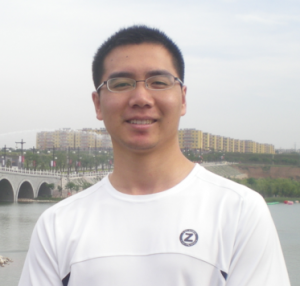
Prof. Hui Yuan
Title: Dynamic Adaptive Streaming over HTTP (DASH)–Principles, Problems, and Methods
Abstract:
With the rapid development of Internet and the prevalence of personal mobile internet equipment, e.g., smartphone, tablet, etc., internet video streaming service, e.g. video sharing, video chat, video broadcasting, etc. is becoming more and more popular. However, due to the limited network bandwidth, how to achieve higher Quality of Experience (QoE) for users is the most challenging issue for a video streaming system. Since traditional Quality of Service (QoS)-based protocol, e.g. real-time transport protocol (RTP) cannot deal with limited and highly varied bandwidth efficiently and are difficult in establishment and maintenance, dynamic adaptive streaming over HTTP (DASH) by MPEG (MPEG-DASH) are becoming more and more popular these years. As the MPEG-DASH standard is based on the HTTP protocol, it can make use of the current network structure, without special equipment support and is firewall friendly. The standard is also robust to network fluctuations. The existing web server which supports the HTTP protocol can be easily upgraded to support the MPEG-DASH standard by software. Therefore, it has been used by many streaming media service providers (YouTube, Netflix, etc.). In this tutorial, we will first introduce the basic principles and main problems that need to be solved of MPEG-DASH, and then review some related works by other researchers. Finally, we will introduce some of our works on MPEG-DASH
Biography:
Dr. Yuan (IEEE Senior Member) received the B.E. and Ph.D. degree in telecommunication engineering from Xidian University, Xi’an, China, in 2006.06 and 2011.03, respectively. From 2011.04 to now, he works as Lecturer, Associate Professor, and Full Professor with the School of Information Science and Engineering, Shandong University (SDU), Jinan, China. From 2013.01 to 2014.12, he worked as a post-doctor fellow with the department of computer science, City University of Hong Kong (CityU). From 2017.11-2018.02, he worked as a research fellow with the department of computer science, City University of Hong Kong (CityU).
He has devoted to the research of video coding and transmission in the past 10 years. When he entered Shandong University form Apr. 2011, he was working as a post-doctor and lecturer. After his post-doctor research, he has established a research group named as “Multimedia communication and processing Lab.” He is the PI of more than ten projects, e.g. Sub-project of National Key Research and Development Plan (2018YFC0806804), National Natural Science Foundation of China (NSFC, NO. 61571274 and 61201211), Shandong Natural Science Funds for Distinguished Young Scholar (NO.JQ201614), Hong Kong Scholar (XJ2012029), Young Scholars Program of Shandong University (YSPSDU, NO. 2015WLJH39), cooperated project of Huawei Co. Ltd. and TM video Co. Ltd., etc. During the research, He has authored or co-authored more than 70 research papers (about 20 papers were published in IEEE Transactions/Letters). Besides, he has also submitted eight proposals (and applied eight patents simultaneously) to the MPEG/AVS aiming at improving the coding efficiency of 3DVs. In addition, he was rewarded the first prize with the Excellent Scientific Research Achievement Award of Universities in Shandong Province in the year 2016 for his excellent contribution on 3D video coding and communication.

